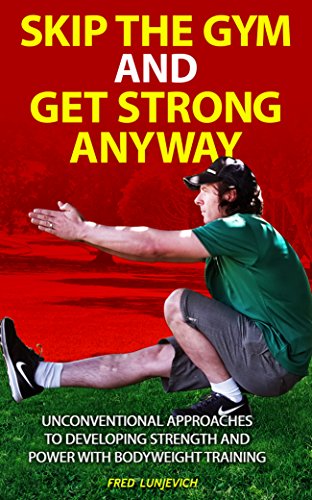Did you know that even the most preposterous, implausible medical modality or supplement can have an effect? I’m sure most people have heard of the placebo effect but how many realise that many (if not all) “alternative” medicine claims are pure placebos and therefore medically inert?
Homeopathy is one such health modality associated with all kinds of claims to mechanisms and efficacy, yet has never been established as such by well-conducted, clinical trials. In fact, the effects of homeopathy are scientifically proven to be purely placebo, yet it still survives and even support for it thrives.
The basis of belief in homeopathy appears to be the same old ideological arguments: distrust of a corporate pharmaceutical industry (Big Pharma) and the fallacy that because something is natural it must be good. Like all alternative health belief systems, homeopathy thrives on an ignorance of science in even its most basic forms.
As noted in my previous post When Belief Unjustifiably Trumps Science, many publically accepted beliefs are adopted when there appears to be a correlation between a modality/supplement and the relief/cure of some ailment. This unscientific way of determining the efficacy of some claimed cure/reliever is unfortunately all many people need to endorse it.
Many people form the erroneous belief that homeopathy is valid merely because of the placebo effect and because of the vagueness of the ailment (dizziness, headaches).
The problem with a purely placebo-based health modality such as homeopathy is that, because it is belief-based, it requires deception in order to work. This point was made forcefully by Simon Singh and Professor Edzard Ernst in their book, Trick Or Treatment – Alternative Medicine on Trial. If a treatment is proven, scientifically to be bunk and purely placebo, then the patient must be deceived about the efficacy of the procedure in order for it to work.
A Short Primer on Homeopathy and Why It’s Nonsense
In order for homeopathy to operate as a base or operating system for medicine “for the 21st century,” the entire system of measurement and of course all physical laws would have to be changed. In analogous political terms, it would be similar to – but more massive a change than – changing a nation from a democracy to a completely different system such as a theocracy with completely different laws and behavior expectations.
– “Homeocracy II,” by Wallace Sampson, Science-Based Medicine Blog.
The above quote may sound odd to many, but do read on and you will see exactly why Wallace Sampson is right on the mark.
Homeopathy is a pre-scientific idea proposed by Samuel Hahnemann in 1809 and is predicated on a couple of nonsensical (farcical) ideas. I suspect that many people do not know exactly what homeopathy is. If they did know then they would realise why those of us opposed to it are screaming “SCAM”.
Here is a good description of homeopathy from a producer of these quack remedies here in New Zealand:
Homeopathic medicines are manufactured using a method that dilutes the original substance to a point where there are no molecules of original substance left. Remedies this dilute contain no drugs and create no side effects. Each of the remedies is selected to match a series of symptoms that have been recorded in over 200 years of use.
– from the Naturo Pharm website http://www.naturopharm.co.nz.
Do you see it? The glaring anomalies that renders homeopathy useless? Dilute the original substance to a point where there are no molecules of original substance left. Why start with original substance at all if you are merely going to produce a sugar pill or bottle of water? And this dilution is supposed to be effective? This is where, if homeopathy were true, there would be a rewriting of all physics and chemistry as we know it.
And there is the ideological line too “dilutes contain no drugs and therefore no side-effects”. True, but then water or sugar pills never do have side effects do they? Of course, without any active ingredient there won’t be a side effect because there is no primary beneficial effect either!
Homeopathy is concerned purely with symptoms and is completely ignorant of the cause. This fact alone would render one highly suspicious of homeopathy, simply because treatment of the cause of ailment/pathogen is how you heal the body and rid the body of the illness. Treating symptoms of illness (unwellness in new age speak) will not allow the illness to subside.
Think about it, if treating symptoms were an even plausible way of treating an ailment, then shouldn’t a baseball bat over the head cure your headache? No of course not, but homeopathy logic means a cure would entail tiny whacks over the head, without actually touching the head. Whammo, no side effects!
Of course, as long as people get proper medical treatment there will be no harm from nonsense like homeopathy. The converse – using homoeopathy to the exclusion of scientific medicine – is a great way to create a bodycount. This was brought horrifically to public attention recently when an Australian man, and homeopath disciple, decided not to treat his 9-month-old daughter’s severe eczema with prescription medication. He opted to use homoeopathic remedy (which we know now to be nothing but water). Through no fault of her own, the young girl was suffered bad malnourishment and ultimately died in hospital, all because of an erroneous, false set of beliefs. Unjustified certainty can be dangerous.
The mechanisms of belief that keep useless modalities such as homeopathy alive represent a departure from the quest for knowledge and genuine understanding of the human condition.
COOL LINK:
The Skeptic Blog – “Homeopathy Awareness Week” – Steven Novella, June 2009.

